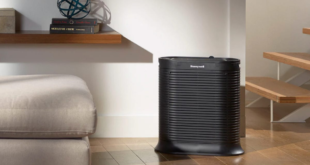Have you ever laid awake in bed so tired, but your mind just won’t let you fall asleep? No matter what you do, whether it’s counting sheep or playing calming sounds, getting to sleep seems more of a chore than something that happens naturally.
For me, back in high school, falling asleep was nearly impossible. Each night I knew what lay ahead of me: Lying awake for hours and rarely getting more than four hours of sleep. It was a torturous, vicious cycle, but I wasn’t alone. Insomnia is estimated to affect almost half the population. While I never sought out an official insomnia diagnosis, the struggle plagued me nightly.
Fortunately, over time, I managed to regain control of my sleep schedule, and now, on most nights, I fall asleep within 15 minutes. A lot of things in my life have changed since then, but one change, in particular, had a surprisingly positive effect on my ability to fall asleep: I started writing to-do lists every night before bed.
For more tips to help ease your sleep woes, here are six natural sleep aids to help beat insomnia and seven foods to eat that’ll help you sleep better.
Creating a to-do list and clearing my mind works wonders
When I started making nightly to-do lists, I didn’t have any idea it was going to help me sleep — I just wanted a way to better track my priorities and productivity from day to day. So every night before bed, I would write down three things I wanted to do the next day. I would also note one good thing that happened during the day, no matter how small. The whole process takes me five minutes at most.
I later learned there may be a connection between clearing our minds and falling asleep. According to a study by researchers from Baylor and Emory universities, making a list of upcoming tasks can help you fall asleep faster.
The Baylor and Emory study looked at people who journaled before bed about completed tasks and activities and compared them with a second group who made a to-do list of things they needed to do over the next day or two before bed. The study showed that writing to-do lists helped people fall asleep significantly faster than writing about completed activities.
The researchers speculate that writing out to-do lists eases the stress and anxiety about upcoming events that tend to keep people up at night. In short, writing things down can help offload worries from your brain onto the page.
Expert advice on ways to get better sleep
If you’re curious about other ways to get a good night’s sleep, I spoke with Dr. Saroja Sripathi, sleep medicine chair for Kaiser Permanente Northern California, for other ideas. She said good sleep is a matter of three factors: the quality of sleep you get, how long you sleep and the timing of your sleep. The best way to maximize all three is to focus on what sleep experts call “sleep hygiene,” the behaviors that help you sleep better.
The decisions we make throughout the day — such as what and when we drink, how much we eat and when we go to bed — affect our ability to sleep at night.
If you have trouble falling asleep at night, Sripathi has research-backed recommendations for improving your sleep quality:
- Stay away from electronic screens for at least half an hour before bed.
- Avoid caffeine and alcohol before bed (alcohol might help you fall asleep, but it’s likely to decrease the quality of your sleep).
- Create a consistent routine that helps signal to your body that it’s time for sleep.
- Go to bed at the same time every night and wake up at the same time each morning.
- Save your bed for sleep and sex — keep your reading, snacking and watching to other parts of your home.
- If you need to wind down at the end of the night, listen to podcasts or guided meditation instead of scrolling through social media or other sites.
If you’ve tried these techniques and are still having issues sleeping, it might be time to seek professional help. Your doctor can work with you to diagnose and treat any potential issues.
The pillow you sleep with makes a big difference in your quality of sleep. The right pillow should keep your neck and spine in a straight alignment. The GhostPillow is an awesome pick for back or stomach sleepers, especially if you sleep hot. It has special cooling tech and physically feels cold to the touch.
Details
Factors that affect your quality of sleep
Getting good and sufficient sleep can be a challenge. For most of us, there’s usually more to do than we can fit in a day, and it’s tempting to cut time out of the 7-plus hours that experts recommend adults sleep every night. But how important is sleep, really?
Sripathi told me that sleep affects more than just how rested you feel the next day. “Our overall physical and emotional well-being is affected by sleep,” she said, so it’s important to prioritize sleep.
Hearing about the benefits of good sleep made me appreciate just how much influence sleep has on our lives. Here are a few things Sripathi said sleep affects:
- Our mood: Good sleep improves mood, and people experiencing issues like depression and anxiety typically complain about sleep problems.
- Our judgment:Getting better-quality sleep charges our minds and can help us think more clearly so we can make better decisions. We have better judgment and can work faster.
- Our memory: Calling all college students — pulling all-nighters while studying is ultimately counterproductive because our brains need to sleep to consolidate what we’ve learned during the day.
- Our immune system: Better sleep can help us stay healthy because our bodies scan for illness while we’re sleeping. Sleep can even help with heart health, an important factor in avoiding heart disease.
- Our bodies: For kids, sleep helps with body development. That’s why children need more sleep than adults — as much as 18 hours per day for newborns.
By creating a good sleep environment and building healthy sleep habits, you have a good chance of helping to program your body to sleep better at night. For me, making a to-do list for the next day was a helpful part of that programming, and I’ve been snoozing much more easily ever since.
 synnbiob
synnbiob


